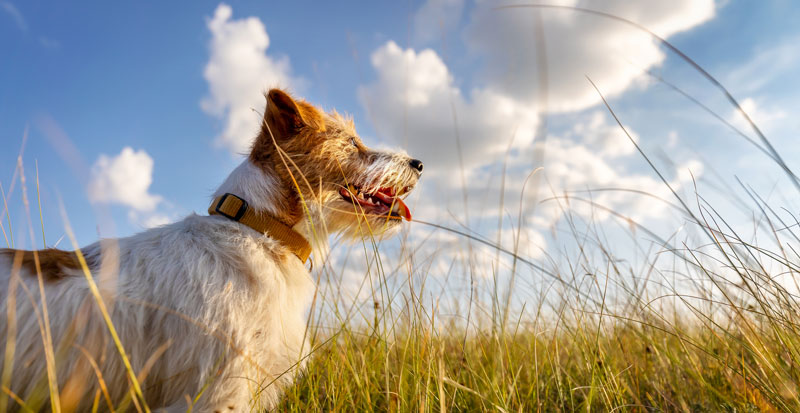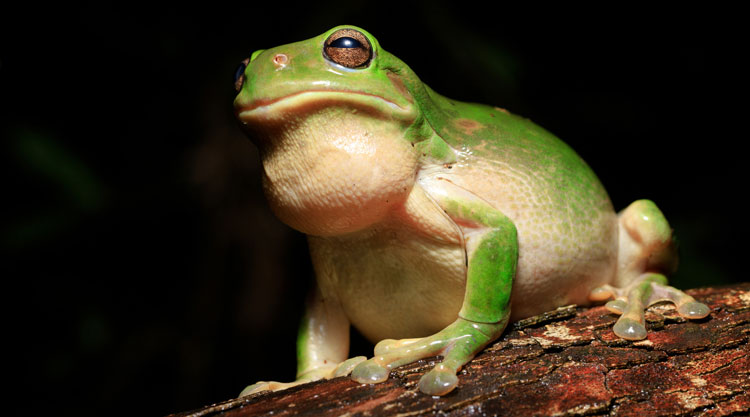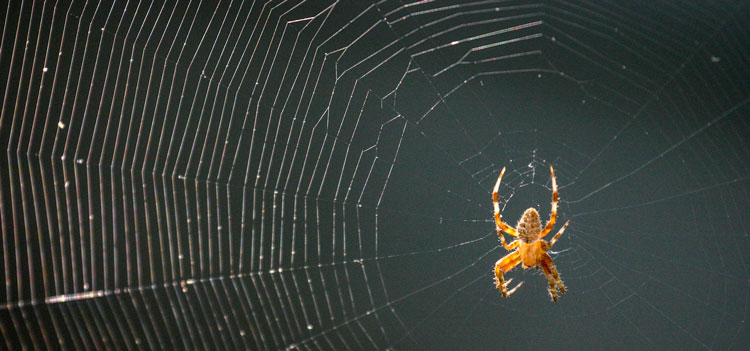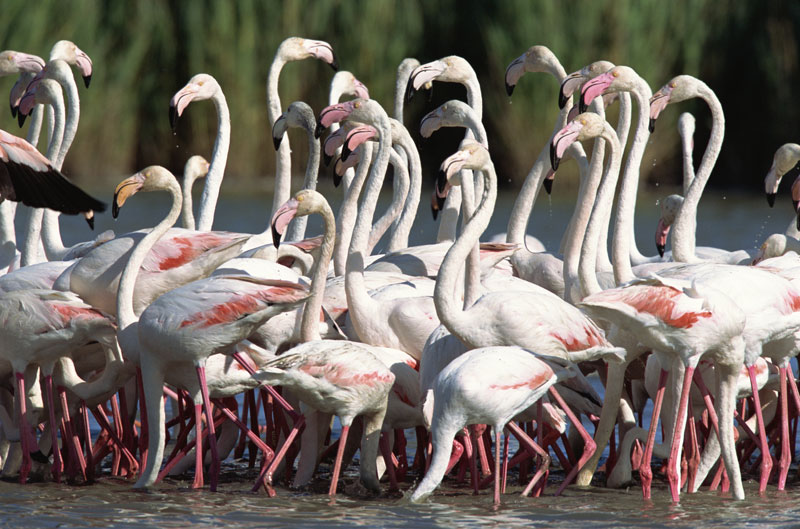Eclipses and Animal Behavior

A solar eclipse catches the attention of people for its beauty and awe, but we might not be the only ones who notice. Many animals also recognize a change in their environment. As the sky darkens and the temperature drops, some species behave peculiarly.
Keeping Your Pet Safe
Worried that your pet will get scared during the eclipse?
It is unlikely that dogs and cats will react to solar eclipses, as they typically do not have a strong biological or behavioral response to changes in light or natural phenomena like eclipses.

To ensure your pet’s safety and comfort during an eclipse, it is generally best to keep them indoors or in a calm, secure environment. You may also want to consider providing your pet with distractions such as toys or treats to keep them occupied and help them feel at ease.
Visit our eclipse page for information on when and where to view upcoming solar eclipses!
Wildlife Reactions to a Solar Eclipse
Wild animals tend to have more overt responses to eclipses than our domestic companions. Some animals may become disoriented or confused by the sudden change in light, while others may simply adjust their activities to the altered conditions.

For example, some birds may stop singing during an eclipse, return to their nests, or stop flying. Researchers reason this is likely because they perceive the darkness as a signal that it is time to roost for the night. Animals that usually start stirring at sunset like frogs and crickets may start to chirp. Some spiders may take down their webs, only to rebuild them again when the sunlight returns. Nocturnal animals such as bats and owls may become active during the eclipse, while diurnal animals such as squirrels and deer might be more active just before and after the eclipse.

In some cases, animals may exhibit unusual or even erratic behavior during an eclipse. For example, researchers have observed ants and bees behaving as if it is nighttime during a total solar eclipse, even though it is still light enough to see. One study during the 1984 eclipse watched as chimpanzees at the Yerkes Regional Primate Research Center climbed up their enclosure as high as they could and turned to face the sky.
In a study conducted during the 2017 eclipse at the Riverbanks Zoo in South Carolina, researchers found that 76% of the animals they observed exhibited a behavioral change in response to the total eclipse. Most of these behaviors were typical of the animal’s evening routine.

Some of the behaviors, however, indicated some level of anxiety for the animal. For instance, a head male gorilla charged his glass enclosure, and one male giraffe proceeded to sway his entire body, including his neck, back and forth. Strangely, all the baboons ran around their pen together as totality approached, despite having just been in two separate groups. Once totality passed, they stopped running and returned to their previous arrangement. Flamingos also behaved out of character, huddling together on an island in the center of their enclosure and remaining still. As totality waned, the flock dispersed to their usual groups.
The response of animals to solar eclipses is complex and varies depending on a variety of factors, including the species, their natural behaviors, and the specifics of the eclipse itself. So, while enjoying the wonder of a solar eclipse, take note of any animals around you–you might spot some interesting behaviors!
Want to measure light and temperature during an upcoming eclipse for yourself? Check out our collection of free eclipse activities, or learn how to build your own pinhole projector with our DIY Eclipse Handbook.
Order PASCO Eclipse Glasses HERE!
